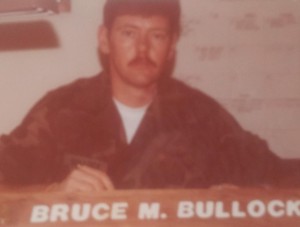The following is a transcript between my uncle and I about his experience in the Vietnam War.
Can you tell me about your experience and how you got involved in the war?
Well, I’m a retired soldier, I was in the military for 20 years. I went in the military of May of 1968 and retired June 1st, 1988.
Why did you enlist?
Well, back then, back in the 1960’s it was kind of a young guy’s duty. Almost everybody joined the military at that time unless they were medically disqualified. Which is different today, but back then almost everybody went in. A lot of my friends were going in. It was more red, white, and blue; duty to country.
When you enlisted, did you know you would be going to Vietnam?
The war went on, and it was a 13 year war, and it started right around 1962-63 somewhere in there, so when I went in 68 I had a feeling I had a chance I would go.
What happened once you enlisted?
Actually, it was two years. After I went in the military I went to aviation. So I had to go to aviation school down in Alabama. And then my first tour of duty overseas was in Korea. And then when I came back from Korea, it was less than a year later that I was sent to Vietnam.
Can you talk about Vietnam?
I entered Vietnam July of 1970, and I left in January of 1972. So I was there a total of 18 months. When I was in Vietnam I was what they call a helicopter door gunner.
What was Vietnam like?
Hot. Very, very hot. No showers, food was awful, all we ate was rations. It was just hot and miserable. The jungles were thick.
What was your role while you were there?
As a helicopter door gunner, we flew seven days a week. And I stood in the door and if we drew fire, we would return fire, and then we just went around looking for trouble. Ya know, seeing if we could locate the enemy on the ground in the jungle by blowing the branches back with our blades.
What would you say was your most significant experience while in Vietnam?
I would say, for the good part, I crashed seven times and never got hurt. That’s the good part. The bad part is, I lost so many good friends that were with me and you just can’t understand how somebody could be sitting six to eight inches away from you and didn’t make it but yet you did. That’s the bad part.
How was it that you weren’t hurt in all those crashes?
Don’t know. Just lucky stars. God watching over me I guess. I still think about those guys in the helicopter with me. Even today, even after 47 years I still have dreams about it.
What was your experience coming back?
Awful. People spit on us, calling us baby killers; just awful. There was no parade like they get today. There was no welcome home or anything like that. We kinda had to hide that we were in the military as best we could so we didn’t get bothered at airports and things like that. We’d been through hell. You gotta remember when you go over and you’re 19, 20 years old, you become an old man real fast. Old woman too, there’s a lot of female nurses over there too, they should be honored just as much as the men were. Putting body parts back together, I mean those girls worked hard.
What was something you learned or something you took away from this experience?
It’s just water under the bridge, a thing of the past. Now I’ve been retired for almost 28 years now, so just keep marching forward. When I first came home I thought about how spoiled the Americans were. We have so much and we just take everything for granted, and sometimes I think we need to stop and take time, and appreciate what we do have. We get to go to sleep every night and get up every morning, don’t have to be looking over your shoulder. You go to school, you go to work, you can do whatever you want to do; a lot of countries don’t have that. We gotta really be thankful for what we have.
What does it mean to you that so many people are coming together to read and talk about a book about the Vietnam war?
I think a lot of guys who were over there are probably really grateful that a story like theirs is finally being heard. It’s not like today when those boys who come back from Iraq and stuff and they can talk about what they saw and what happened. We didn’t do that. When I got back from Vietnam it was like those two years didn’t exist. We didn’t talk about it – we kept our heads down and our uniforms hidden. A lot of people don’t know what happened in Vietnam because of that, none of the boys coming back talked so no one knew. I think it’s great that our stories are finally being told, and young people are willing to listen.
Bruce M. Bullock U.S. Army Retired



